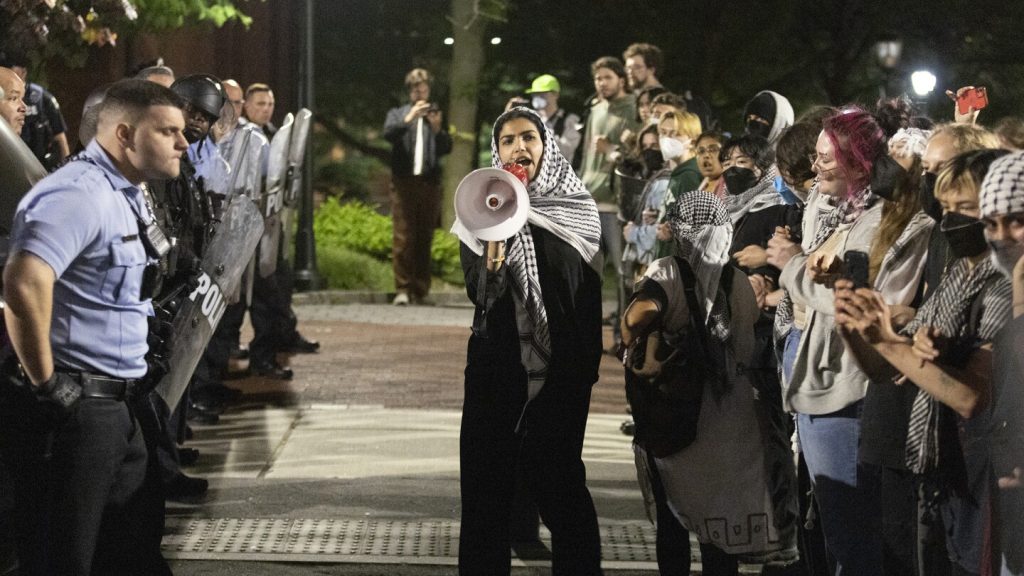Pro-Palestinian protesters at Drexel University in Philadelphia have defied a request by the university’s president to disband their encampment, leading to increased tensions on campus. The protesters have been accused of subjecting passersby to antisemitic speech, signs, and chants, but the Drexel Palestine Coalition denied these claims. Despite the ongoing demonstration, no arrests have been reported at Drexel.
Nationwide, more than 3,000 people have been arrested in connection with campus demonstrations against the Israel-Hamas war, with tensions escalating following a police crackdown at Columbia University. While campuses have become calmer as students leave for summer break, concerns remain about disruptions during commencement ceremonies. At Drexel, where an encampment was set up after a march from City Hall, classes have shifted to virtual learning and employees have been asked to work from home.
Protests have also been seen at other universities, with George Washington University graduates walking out of commencement ceremonies to protest, and President Joe Biden addressing the situation in Gaza during a speech at Morehouse College. At Wesleyan University, an agreement has been reached with student protesters to review possible divestment, leading to the clearance of an encampment on the campus. The Associated Press has documented at least 82 incidents of arrests at campus protests since April 18, with over 3,000 individuals arrested at 61 colleges and universities.
The latest Israel-Hamas war began with militants storming into southern Israel, resulting in casualties and hostages on both sides. The conflict has led to a high number of casualties in Gaza, with thousands of people killed according to Gaza’s Health Ministry. The ongoing tensions have sparked protests and demonstrations on college campuses across the United States, with students and activists calling for divestment from Israel and a ceasefire in Gaza. Universities have been urged to address the concerns of protesters and work towards resolutions that promote peace and justice in the region.
Despite the challenges and disruptions caused by the protests, universities like Wesleyan have shown a willingness to engage with student protesters and address their demands. The agreement reached at Wesleyan demonstrates the potential for dialogue and collaboration between student activists and university administrations. As the situation continues to evolve, it will be important for all parties involved to work towards peaceful resolutions and constructive engagement to address the root causes of the conflict and promote understanding and cooperation.


